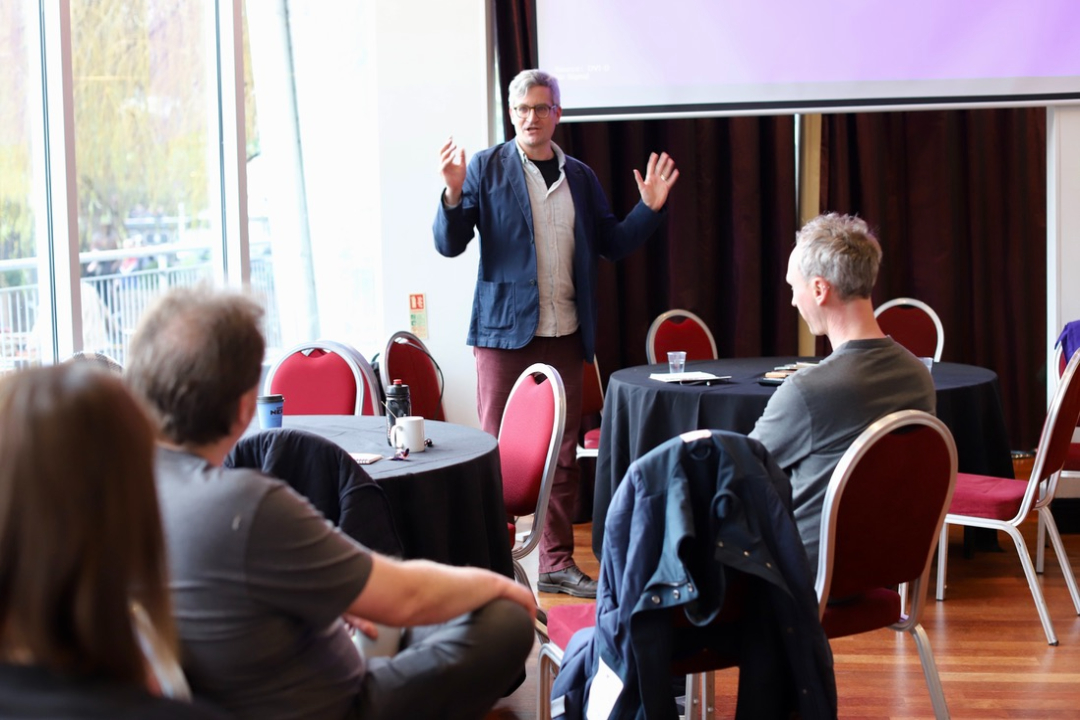Humans of dxw: all roads lead to Rome (albeit via Java)

Entering into software engineering teams, I often felt like an anthropologist
My path into software engineering puzzled me for a long time, in that it began in the Humanities. More specifically, with a PhD in Latin literature and, more specifically than that, with a thesis on the influence of an ancient philosophy called Stoicism on the Roman aristocracy in the 1st century AD.
I’d entered university to read Politics. But it’s hard to remember, now, just how solved everything seemed in the mid-90s. The Berlin Wall had fallen and Fukuyama’s The End of History was a touchstone of lecturers everywhere. What would later be called ‘neoliberalism’ had triumphed, and all that really remained for policy to do was to tidy up some administrative loose ends.
Slouching into the past
I started off in History mostly out of laziness – Canadian universities require a language course in the first year, and Latin jumped out at me because it didn’t have a spoken component. But once I was there I found it easy to stay, because the world it opened up operated according to such different rules than the ones I was used to. It was fascinating and liberating, and seemed to say so much more about the human condition and its potentialities than the complacent certainties on offer elsewhere. 8 years later I was still exploring the rich garden of a world that had never known the 20th century’s orthodoxies.
Change comes even to Latin literature, though, and by the time I had my PhD a new discipline called ‘digital humanities’ had started to coalesce. I ended up working on a lot of niche-but-interesting projects, learning as I went – a digitisation of the Domesday Book, a search engine for papyrus fragments and a hypertext system for ancient literature. But, slowly, a gap was widening between myself and my colleagues. While they were focused on the analytic capabilities these new digital tools were opening up for them, I was becoming more interested in the tools themselves. After a few years of this it was clear I was headed for a career in software rather than academe.
Jumping into the present
But switching full-time into commercial application programming from the ivory tower was more of a jolt than I’d anticipated.
The problem wasn’t the technology. Curiously, Latin’s extreme methodical regularity unpredictably punctuated by random idioms and loose structure makes it a decent preparation for working with computer languages. Particularly those, like Python or Java, whose utility comes from: thick libraries created by imperfect humans, under less-than-ideal conditions overlying a highly coherent syntactic core.
No, the part I found challenging was culture. Entering into software engineering teams, I often felt like an anthropologist. While, in principle, the organisations I was joining were governed by the need to ship reliable code and turn a profit. In actuality, they tended to be structured according to an arbitrary jumble of:
- inherited practice
- management trends
- consultancy buzzwords
- ethical concerns
- the magnetic pull of particular personalities
Even stranger, these institutional forms were often held to be essentially unquestionable – or, more frequently, were left unspoken and unperceived.
Unsurprisingly, the resulting structures tended to be dysfunctional, to one degree or another. As a result, I started getting interested in management theory – in what effective and ethical organisations look like, and how they operate.
Looking back… into the future
This, ultimately, was what drew me to dxw. Through reading the Playbook, scanning through their case studies, and watching the journey towards becoming an Employee-Owned Trust I realised this was a company that was not only asking the same questions I was – it was even starting to work on some answers.
Along the way, I’d also started to realise that management questions I was asking myself were, in fact, political ones. That issues of organisation and distribution of labour and rewards were, at base, the same ones that had led me to start studying Politics all those years ago. And that there was now a wider range of issues and possible responses than had seemed to be the case when I was a student.
I also stumbled across the fact that chief amongst the trends and buzzwords driving Silicon Valley in recent years has been a revival of an ancient approach to living and to self-management known as… Stoicism.
All of which makes me suspect the path to becoming a Lead Technologist has been less circuitous than I’d thought.